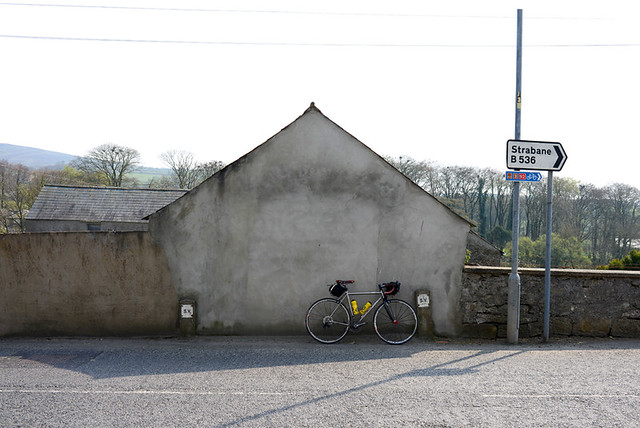A friend of mine is a glider pilot, whose specialty is cross country flights. While the comparison is not fitting in all aspects, cross countries to gliding are a little bit like what brevets permanents are to cycling. You declare a task involving a long distance route, pick a day when thermal activity is conducive, and take off - in a tiny unpowered plane. Because glider planes have no engines, the pilot must rely entirely on their aviation skills to stay up in the air over hundreds of kilometers, to cover the route they set out to do, and to land safely. It is an unsupported, challenging activity that, as the consequences of failure are high, would to most people seem insanely dangerous. To the pilot, however - who is typically the sort with nerves of steel and a pathologically high fear response threshold - it is a nice day out. "My favourite part," says my friend, "is when you pass that point where there is no longer an option to turn back early - when you've committed yourself to doing the entire distance…"
Merely imagining experiencing this inside a glider sends a chill down my spine. But it is also deeply familiar. It is something I feel every time I cycle long distance, whether as part of a brevet or on my own. As the miles roll I can sense that point approaching, and a subtle, yet delicious excitement builds up within me. Mile 10, 20, 30 … mile n …if I'm not feeling up to this, I can turn back and cut the ride short, yet still get home on my own power. I'm in the safety zone. But then comes that mile n+x when I know that, if I continue, there is no turning back. Or rather, no sense in turning back, as doing so wouldn't diminish the distance left to travel compared to completing the route. I am in the deep end now. I am out at sea. This awareness, rather than making me anxious, fills me with an unexpected inner calm.
For a glider pilot, to abandon a cross country flight once that point of no return is passed involves the skillful act of "landing out" in the nearest field where an emergency landing can be accomplished. Then comes the phone call to that lucky designated friend or family member, who will have to drive out to the site with a special trailer in tow to bring pilot and glider back. The riskiness of an unplanned landing, the inconvenience of the rescue, and the pervasive aura of failure accompanying it all, make this an experience pilots want to avoid like the plague. Abandoning a ride and requiring a rescue (while far less fraught with danger) is similarly traumatic for cyclists - particularly on a brevet, with its stress on self sufficiency. A year after the fact, the one and only time I've had to be rescued remains an open sore.
I do not make the decision to pass the point of no return frivolously. Do I have the legs? Do I have the energy? Is the amount of food and water I've brought proving sufficient? Is the weather shaping up to make for a safe return? Am I doing okay for time and are my lights adequate if I run out of daylight? These are all questions I run through my head, like a check list, before re-committing to the intended distance at that mile n+x marker, where I still could turn back and cut the ride short. But once I do decide to keep going, there is no second guessing. And a wonderful feeling of being untethered comes over me, bringing with it a fresh rush of energy. There is a sense of freedom in the awareness that there is nowhere to go but onward.





0 comments:
Post a Comment